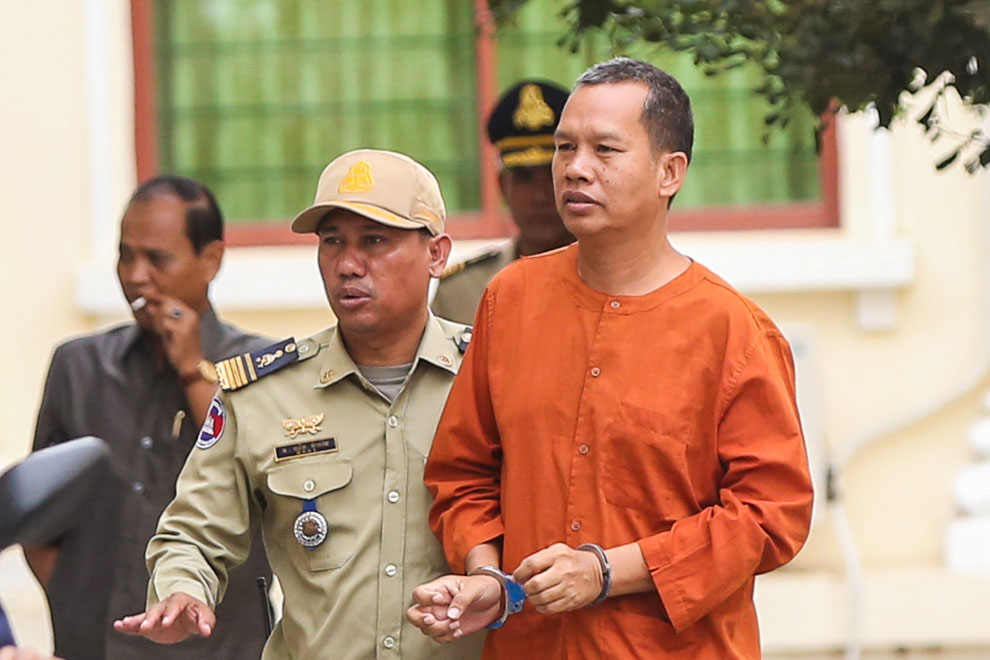
Long Kimheang, the wife of alleged filmmaker Rath Rott Mony, and 10 other protestors gathered outside theEmbassy of the Russian Federation in Phnom Penh on January 2. Heng Chivoan
The Appeal Court on Thursday rejected the plea for bail by Rath Rott Mony, a suspected filmmaker who has been “temporarily detained” over accusations of “incitement to discriminate” for his alleged role in a documentary shown last October by RT, formerly Russia Today.
On Wednesday, Judge Suos Sam Ath presided over the hearing of Rott Mony’s bail plea, with prosecutor Tan Senarong presenting the case. The closed-door session started at 10:30am and lasted for only 10 minutes.
The Appeal Court also announced on Thursday that it upholds a lower court’s ruling of keeping Rott Mony in custody.
“The Appeal Court disallowed his [Rott Mony’s] bail and upheld the previous verdict issued by The Phnom Penh Municipal Court,” court spokesperson Touch Tharith told The Post on Thursday.
Rott Mony’s wife, Long Kimheang, said she had visited her husband at Prey Sar prison and that she is aware of the Appeal Court’s latest verdict.
“I am in disbelief of the Appeal Court’s decision to keep my husband in prison. I feel like the journey to justice is a long way off. I will talk to my lawyers whether or not we would appeal to the Supreme Court,” she told The Post on Thursday.
“We will keep fighting because we have nothing else other than hope.”
One of Rott Mony’s defence lawyers, Sam Titseyha, couldn’t be contacted, while the other, Lor Chunthy, declined to comment, saying he was “absent during the verdict’s announcement”.
The documentary, My Mother Sold Me, addressed sex-trafficking in Cambodia and allegedly depicted a young Cambodian woman selling her daughter’s virginity.

Rath Rott Mony at the Appeal Court in Phnom Penh on Wednesday. Hong Menea
The exact role of Rott Mony, who is also the president of the Cambodian Construction Workers Trade Union Federation (CCTUF), in the film, remains a source of controversy.
According to Kimheang, the film had been translated into 10 languages and became viral in Cambodia.
She said on Wednesday: “When my husband and I first saw the title of the documentary, we started to worry – we had thought that the problem would happen."
“In a phone call, the producers assured him that they would provide a lawyer in case he would need legal assistance. At the end, when my husband got arrested, the producers did not offer any lawyer while we already had two local ones.”
Kimheang said Rott Mony was arrested by Thai authorities last month while she and her husband were in the kingdom to shoot a film about Cambodian migrant workers and to lodge New Zealand visa applications. He was sent back to Cambodia immediately afterward.
On December 13, the Phnom Penh Municipal Court formally accused Rott Mony of “incitement to discriminate” under Article 496 of the Criminal Code. He faces one to three years in prison and a fine of two to four million riel ($500-$1,000) if found guilty.












